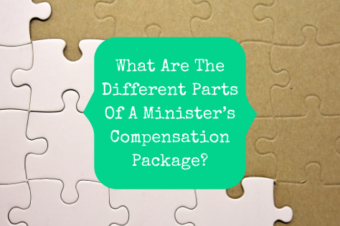
The insurance industry has created so many complicated products that it scares people out of buying life insurance. However, life insurance is an important protection for your family. Here is a primer that will prepare you for competent life insurance shopping.
Life insurance is a good idea, right? Most people think so, even though only 54% of Americans actually have some. It’s interesting to look at the statistics because 4 in 10 people say they haven’t bought life insurance yet because they don’t know how much they need or what type to buy. Also, the most important factor for people when buying life insurance is that it’s easy to understand.
Basically, we all think life insurance is good to have but its complexities scare the bejeebers out of us and immobilize us. It makes sense to me. Professional financial advisors take entire graduate-level courses regarding insurance and still have questions.
It would take hundreds of pages to explain all of the details of life insurance to you, but here is a primer to get you started. It will give you a handle on the different types of insurance available and what you need to consider when deciding how much and what kind to buy.
Why Do You Want Life Insurance?
I always like to start with the question of why. You need to know your goal before you can develop an action plan. So, the first step in buying life insurance is asking yourself why you want it in the first place.
The top three reasons people give for buying life insurance are:
- To cover burial and final expenses
- To replace lost wages and income
- To transfer wealth or leave an inheritance
Other reasons to consider are:
- To pay off debt
- To fund higher education
- To pay off a mortgage
- To give to charity
- To fund your spouse’s retirement
What does your life insurance have to do in order to give you and your family peace of mind? The goal you have for your life insurance will determine how much you need, how long you need it, and what kind is most appropriate for you.
Types Of Life Insurance
Once you know what it is you’re looking for, you need to understand your options. There are three basic kinds of life insurance, each with its own variations and nuances.
Term Life Insurance
If you’ve ever listened to Dave Ramsey, you’ve heard of term insurance. This is the only kind he recommends and he recommends it frequently. It is a pure insurance policy in that you pay an insurance company money and you only get something back if you die. What you are paying for is peace of mind, knowing that if something happens to you your family will be taken care of.
Term insurance only lasts for a limited amount of time, the term of the policy. I have term insurance that only lasts until my children leave home. Though I am irreplaceable, my husband can support the family without me as long as he has someone to watch the kids and make dinner. He has term insurance that lasts until we can start using our retirement accounts. I couldn’t support the family without him, but once he retires I will be financially depending on the retirement accounts, not him.
Term insurance is also the most affordable insurance, by far. I pay $10 a month for $250,000 worth of coverage. Not bad, huh?
Convertible Term Life Insurance
A convertible policy is term insurance that can be changed to permanent insurance if you decide you need it. It’s nice because it leaves you with the option of getting permanent insurance without going through underwriting or a medical exam. However, you usually only have until age 65 to convert before losing the option. The downside to convertible is that you have to pay more for that option.
Whole Or Permanent Life Insurance
This is the kind of insurance that everyone but Dave Ramsey is trying to sell you. It is the most expensive insurance and pays great commissions to the salesmen. Whereas term insurance lasts for a set amount of time, whole life insurance is permanent and lasts until your death, however long that takes. All you have to do is stay on top of your premiums and your beneficiaries are guaranteed money eventually. One nice thing is that your premiums and policy do not change as long as you keep your payments up to date.
Whole life insurance is often advertised as an investment or savings vehicle because there is an investment component to it. In addition to the death benefit, there is a cash value that builds over time that you can borrow against tax-free. While having the cash value available to you may be nice, there are much more productive ways to invest outside of a life insurance policy.
While traditional whole life cash values grow at a fixed rate, there are two kinds that don’t:
Universal Whole Life Insurance
Universal life insurance is promoted for its flexibility. Depending on your financial needs at the time, both the premium and death benefit can vary. As mentioned, the cash value does not grow at a fixed rate, but rather it is tied to the market. Therefore, there is no guaranteed rate of return. As with other investments, you have the opportunity for both high returns or negative returns.
Variable Whole Life Insurance
Variable insurance is like universal insurance for people who like to be in control. With universal, the insurance company manages how your cash value is invested. With variable, you get to do it yourself. Some people love this because they can invest as aggressively as they want to, but the greater potential for reward also carries greater risk.
Other Things To Keep In Mind
One thing I’ve noticed in life is that smart people tend to overcomplicate things. (There are a few in my family like that.) I think it’s just a way of keeping their brains entertained. Consequently, I think the insurance industry is run by a bunch of really smart people. Every year they come out with new insurance products, each more complicated than the last.
They like to combine different financial products, like insurance and investing or life and long-term care insurance, much like children mixing paints to see what they can come up with. When kids mix paint long enough, though, everything ends up brown. The same happens with insurance. They end up with highly-complex products that do more to pad their own pockets than benefit consumers.
It works because buying confusing financial products seem to make people feel sophisticated. However, that is the exact wrong way to approach financial products. You should never buy something that you don’t fully understand.
Remember, insurance salesmen are salesmen. Their livelihood depends on getting you to say yes, not on doing what is necessarily best for you. While there are plenty of good, honest people in the insurance industry, there are also many who just want to earn the biggest commission possible regardless of your wellbeing. There are also a number of well-meaning people who believe they are selling you a good product out of ignorance because their only training has come from the company that created the product.
Seek Unbiased Advice
It can be hard to decipher the best life insurance product for your needs and to know what advice you can trust. If you are buying term insurance, it is probably simple enough for you to compare policies and pick one on your own. However, if you are considering one of the more complicated products, I would recommend seeking advice from an unbiased professional. From someone who understands insurance but has nothing to gain based on your decision.
Find a financial advisor that doesn’t sell insurance and sit down with them for a one-time consultation. They can help you make sense of the products being offered to you so that you can make a wise, educated decision. To find an unbiased professional, try one of the options at the end of this article.
Life insurance is an important tool for protecting your family from financial hardship. Don’t let intimidation keep you from providing for them. If you’re not up to analyzing all the different policies available to you, just go get a cheap term policy and buy yourself some time. It’s far better than doing nothing.
You can learn how to calculate how much insurance coverage you need in this article.




1 Response